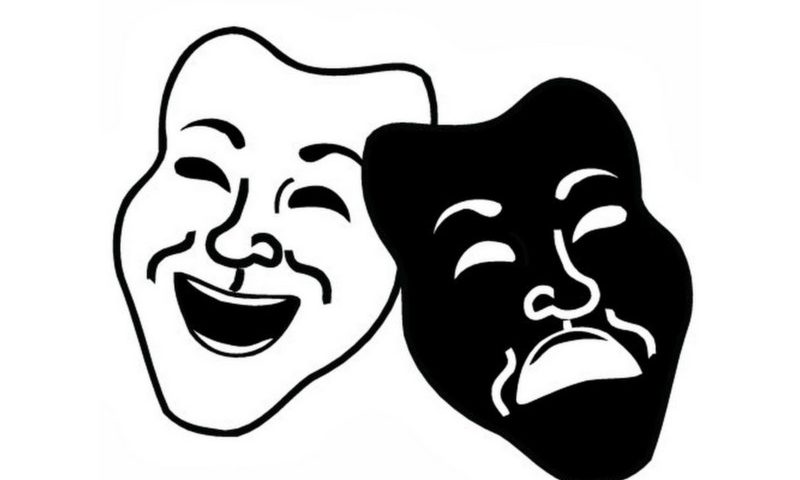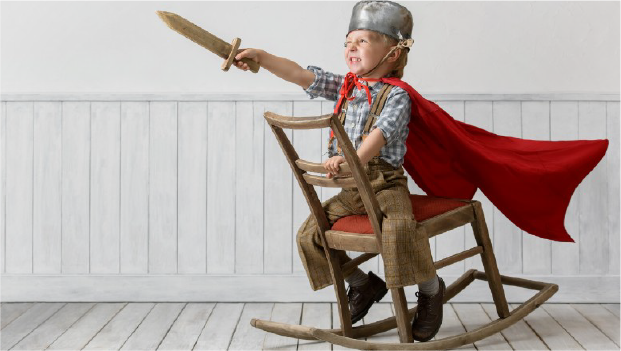Funny Tragedy

Fallen “HEROES”
February 18, 2013
The Tunnel
May 10, 2013
So I posted a “joke” on my Twitter and Facebook status, which related to the Oscar Pistorius saga. As expected I got a few fun comments, mostly “likes” but surprisingly I got a few snippy responses that, to be honest, surprised me.
Why would anyone ask to be my friend if they didn’t understand my unusual take on the world and sometime humorous slant? Really – you wanna be my friend? Is it just me or should guys never really ask other guys to be friends on Facebook or to follow me on Twitter? Maybe just me!
After I checked my ego at the Green room and un-friended anID.10.T whose comment bordered on a personal attack, I started thinking. Some people don’t understand the purpose and importance of humour when a tragedy occurs.
It also seems, as I said in my previous opinion piece, that the child arises in some people and they personalize the tragic event even if it had nothing to do with them, nor would it ever affect any part of their lives. Let’s face it Reeva’s unfortunate death and Oscar’s prison time is really not going to affect you or me nor the millions or billions of people around the world.
Every day thousands of people are killed and in this country alone approximately 50 people are murdered every day. Yes, a busload of people are violently killed every day in this small country yet Facebook and Twitter feeds are reasonably quiet on the matter. That’s not to mention the rapes, assaults, robberies, house invasions, culpable homicides, road deaths, corruption and the building of a fortress by a president using tax payer money. Money meant for housing, hospitals, and crime fighting. And what helps us cope? Humour!
Quoting research from psych papers I’ve delved into (but forgotten to write the authors name down), “… some psychologists classify humour as one of the “mature” defence mechanisms we invoke to guard ourselves against overwhelming anxiety…”
It has been a long time since I have used my considerable research on the importance of humour in everyday life and just in case my research was outdated I headed straight for that trustworthy, reliable, always correct, fountain of knowledge –Google, to update, confirm and academically justify my opinion. To my amazement there was a plethora (cool word hey?) of papers and opinions on the importance of humour at times of great tragedy.
In my opinion comedy and humour have a very important place in our society especially when tragedy strikes. It is important that humour is used correctly and with a purpose in mind. That’s my opinion. Others differ and believe that nothing is sacred and comedy is comedy and everyone and everything is fair game. I respect that point of view but do not necessarily subscribe to it.
It has been said that we laugh at that which we fear the most, and that laughter is a coping mechanism that helps people make it through difficult times.
Paraphrasing an article about Kenneth Burke (a philosopher of language whose writings have impacted many 20th century thinkers and authors) he describes comic and tragic frames that allow people to impose order on social and personal experiences. “They provide perspective for interpretation of events and a way of deciding what types of social action should be taken in a given situation. The goal of the comic frame is to achieve change by pointing to and poking fun at the faults and flaws in a given circumstance. The comic frame takes nothing at face value because it’s not a literal view of things. Instead, it assumes that there is always some hidden motive that could be lurking in even the most obvious and explicit statements and actions. Therefore the aim of the comic frame is not to sacrifice or kill the scapegoat but to chastise the social ills and perpetrators.”
According to Adrienne E Christiansen and Jeremy J Hanson authors of Comedy As A Cure For Tragedy, “Rather than reducing social tension through mystification, scapegoating or banishment, rhetoric in the comic frame humorously points out failings in the status quo and urges society to correct them through thoughtful action rather than tragic victimage”
So when I posted, “My wife woke me at 2 o’clock in the morning. I said what’s wrong?” She said, “I have to go pee, don’t shoot!”” The humour poked fun at the underlying fear and crime conditions in South Africa at the current moment. It pokes fun at the unacceptable situation our country finds itself in and given how many people are and have been mistakenly injured and killed as a result of rampant criminal fear and mistaken identity, it is a relevant protest in a comic frame.
It could and does also challenge the perpetrator who shot without warning and used deadly force through a closed, locked, door without (in his own version) being in imminent danger or a life-threatening situation. (See gun owner’s manual pages … every flipping where … on every gun he owns!) He didn’t even check to see if the love of his life was safely out of harms way first.
In my opinion it’s open season on Oscar. He took a life. Is it tragic? Yes. Can it be funny? You betcha! Do I feel for him if it was mistaken identity, of course! Is it every gun owners fear that the exact gun you have to protect you and your family will be used against you and your family? Dah! How do we talk about it? We make jokes. The comic frame could also challenge Pistorius’ rendition of the events.
When Zapiro creates a cartoon the humour has a social message but at the same time releases tension and fear in people. It makes people smile; it makes them look at things differently and helps us cope. When he drew Lady Justice being held down by Zuma and his buddies about to rape her, the frame was on rape in S.A, on crime, on the rape of justice – not rape victims.
I use Burke again, “Burke refers to the main character in the tragic discourse as the victim because the person cannot avoid suffering his or her fate. The tragic victims discourse is fruitless because he or she appeals to a supernatural force such as God, fate or destiny.”
One of the comments on Facebook was a woman who ranted, “what if it was your daughter!” Well it wasn’t, and neither was it hers, but it was someone’s daughter and as Burke explains it is bad form to make jokes at the expense of the victim or people suffering due to the tragedy.
Making jokes about the 911 victims and ordinary families is still unacceptable to this day, however poking fun at the terrorists, their beliefs, what could have happened to them, safety standards, learning to take off and not land a plane was fair game.
Some believe that there is an invisible line that separates what can and cannot be joked about and what is in good taste. For some people there are no lines and everyone and everything is fair game. I do not subscribe to this form of humour however some people find it the only way to cope with a tragic situation.
Google article. “There are those of us who take solace in morbid humour and do so instinctively. It’s in our make up-it’s who we are. We do this not to laugh at the victims or to mock the emotions of those close to them but to proclaim to the universe, “bring it on! I can take whatever you’ve got!”
Just before starting a session shortly after Valentine’s Day, I advised all the delegates to get all of the Oscar Pistorius jokes out of their systems. 90% of the jokes were aimed at Oscar (who did pull the trigger and kill an innocent person) and the situation. One of the delegates submitted a “joke” that clearly crossed the line because it was framed at Reeva. The entire room gave out a moan and someone said, “That’s hard-core buddy!” It was funny, but for most of the room aiming at the victim just seemed inappropriate and just plain wrong.
So humour is a very necessary part of many peoples and societies’ healing process and helps people cope. If it’s not your style or way, then move on and deal with it in your way. Just don’t judge others for dealing with it using comedy. Or do!
“People deal with emotions in different ways – some people shut down, others lash out. Some people get irrationally angry, and some just want to blame every contributing factor. Some people won’t talk about it and others will just cry when they think about it. Everyone has some way of dealing with life and its ups and downs that it brings.” I must remember to write my source’s details down. Well by the italics, quotation marks and classy writing, you know I didn’t say it!
“Being able to laugh at traumatic events in our own lives doesn’t cause us to ignore them, but instead seems to prepare us to endure them.”
“Humour helps us realize that everything is going to be okay. That no matter how bad and bleak things may be, there will be recovery and survival. That even death and loss are surmountable by those who remain. That we are strong enough to get back and continue moving.”
In many cultures death is celebrated and a party is held to honour the life of the deceased. Many religions claim that the “after life” is the ultimate place to be and death is so grand that’s why they save it for last. Whatever you believe know this; tragedy is a part of life, it cannot be avoided however hard we try. In the story of life everyone dies in the end. We can cry, get angry, give up, fight, runaway, blame, protest or laugh. I choose to try and laugh every day and to make people laugh. Some situations are funnier than others, try and find the fun in your life as often as you can.
Love, Light and Laughter


